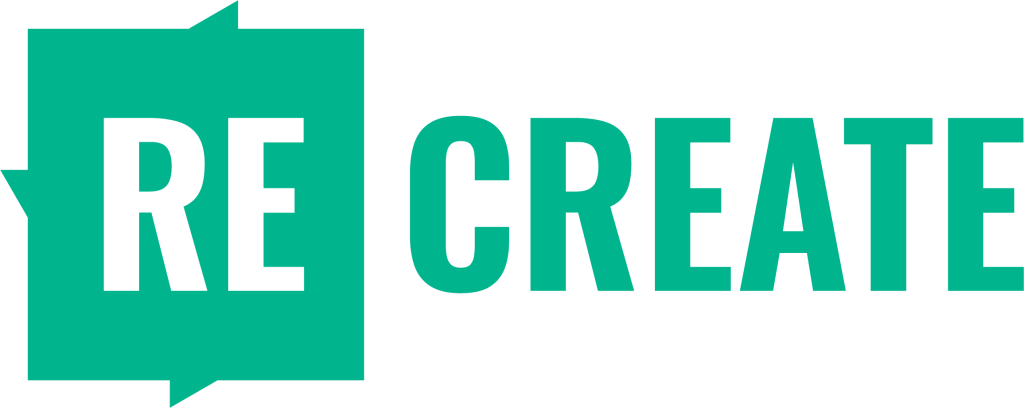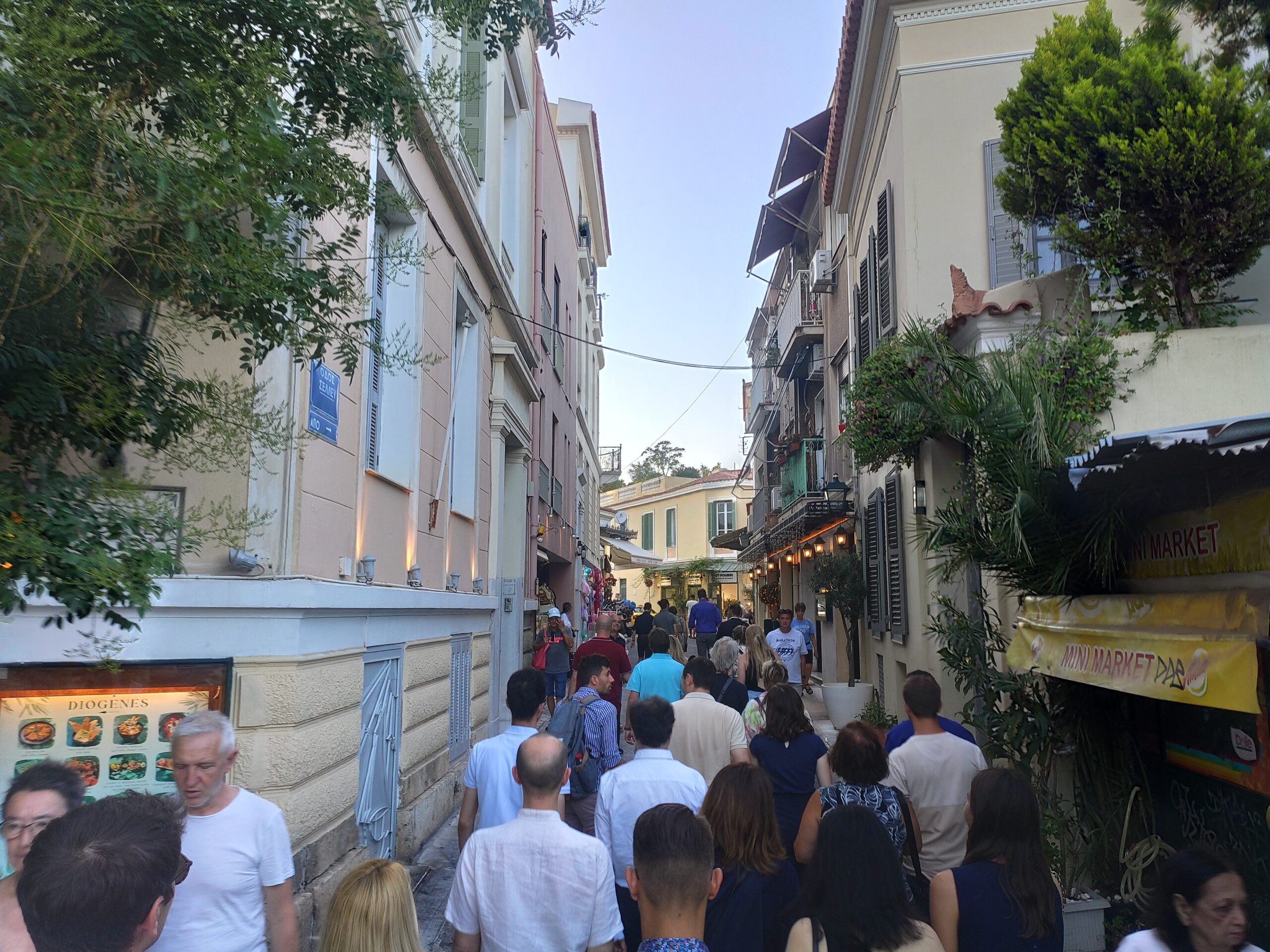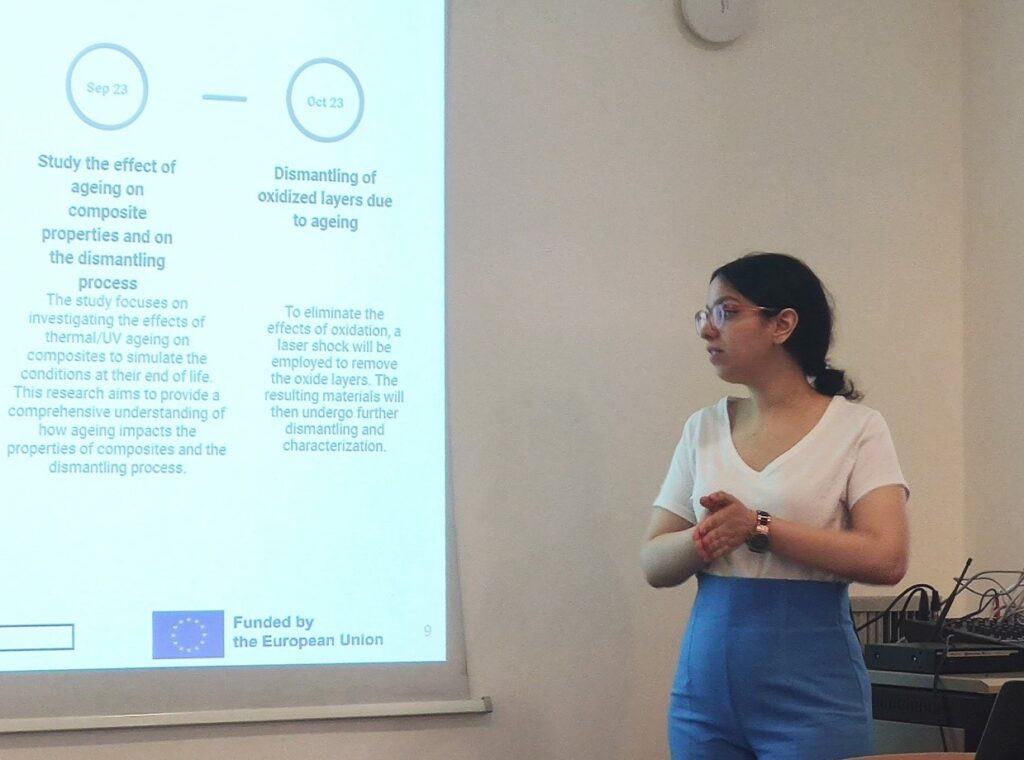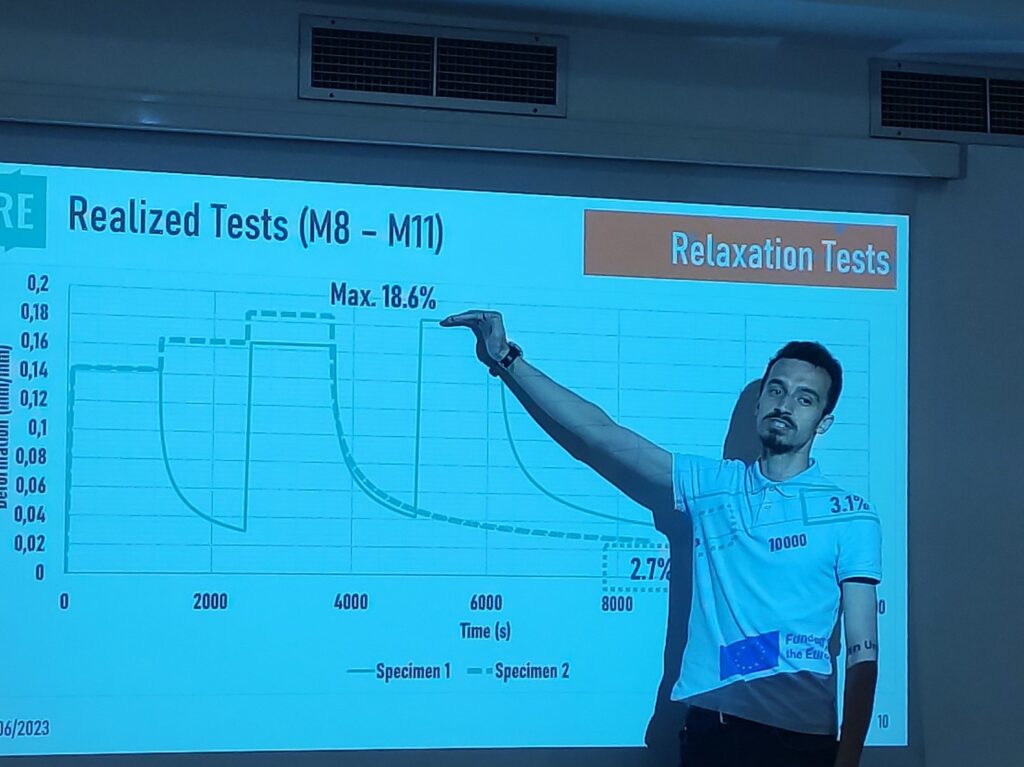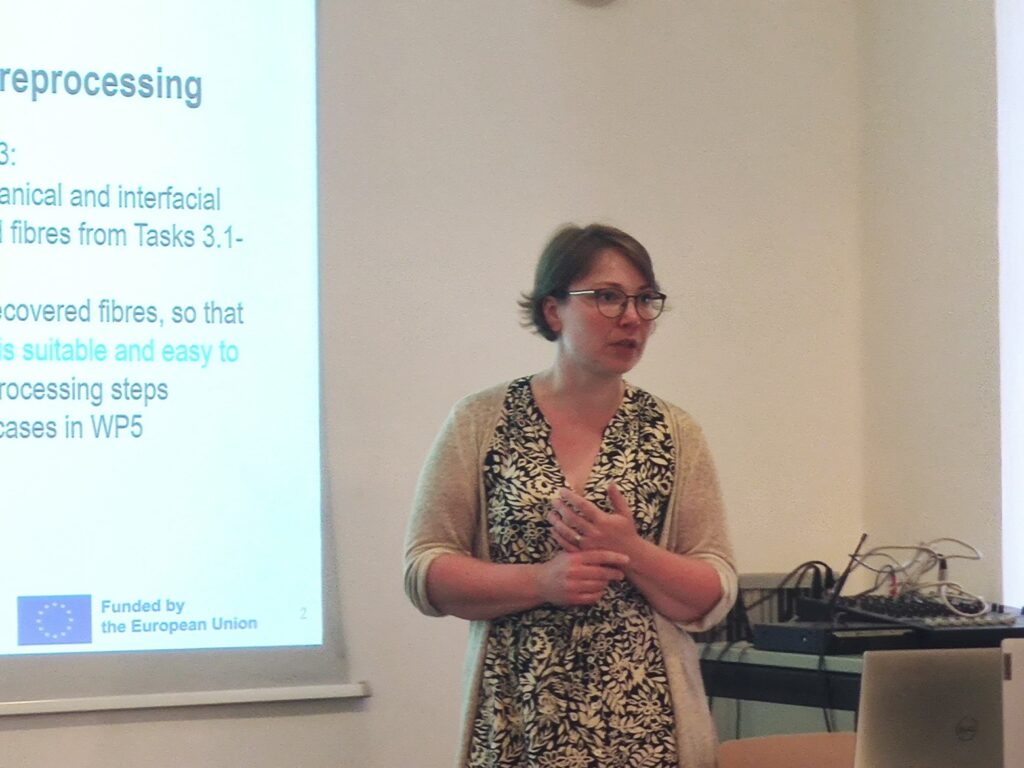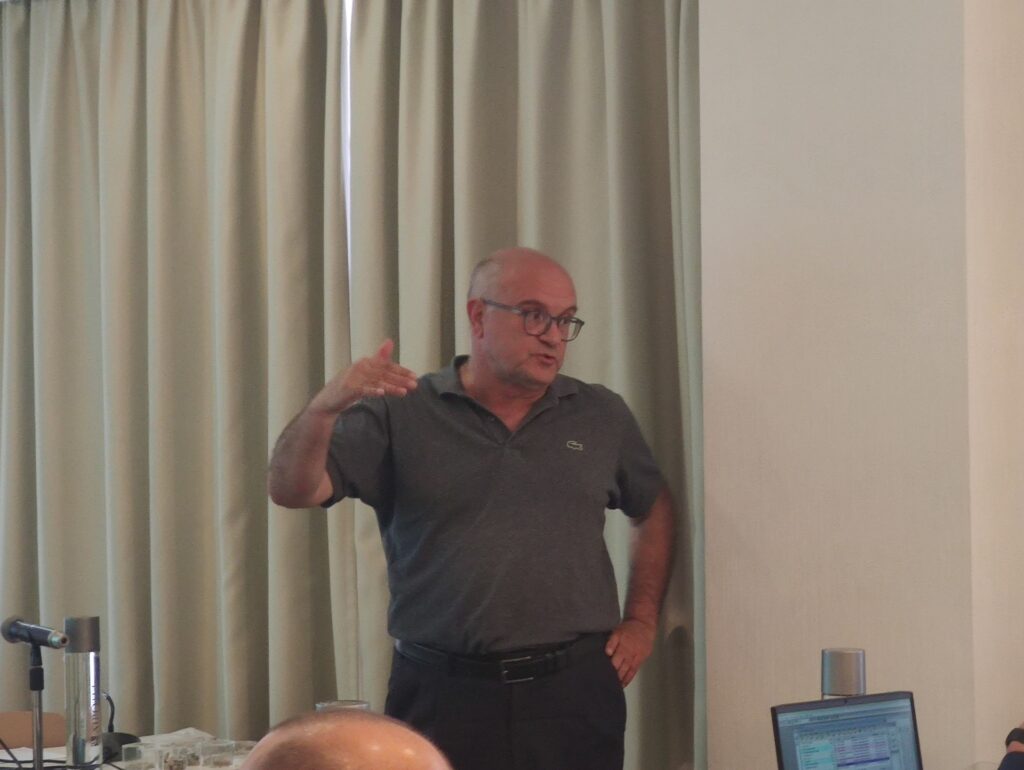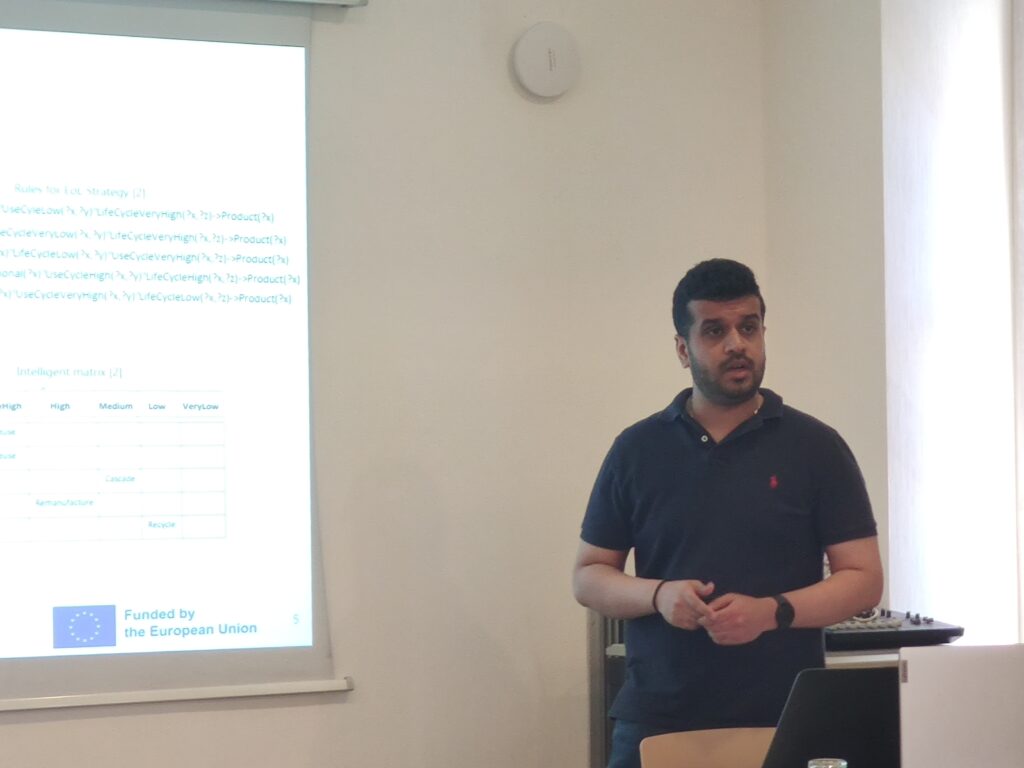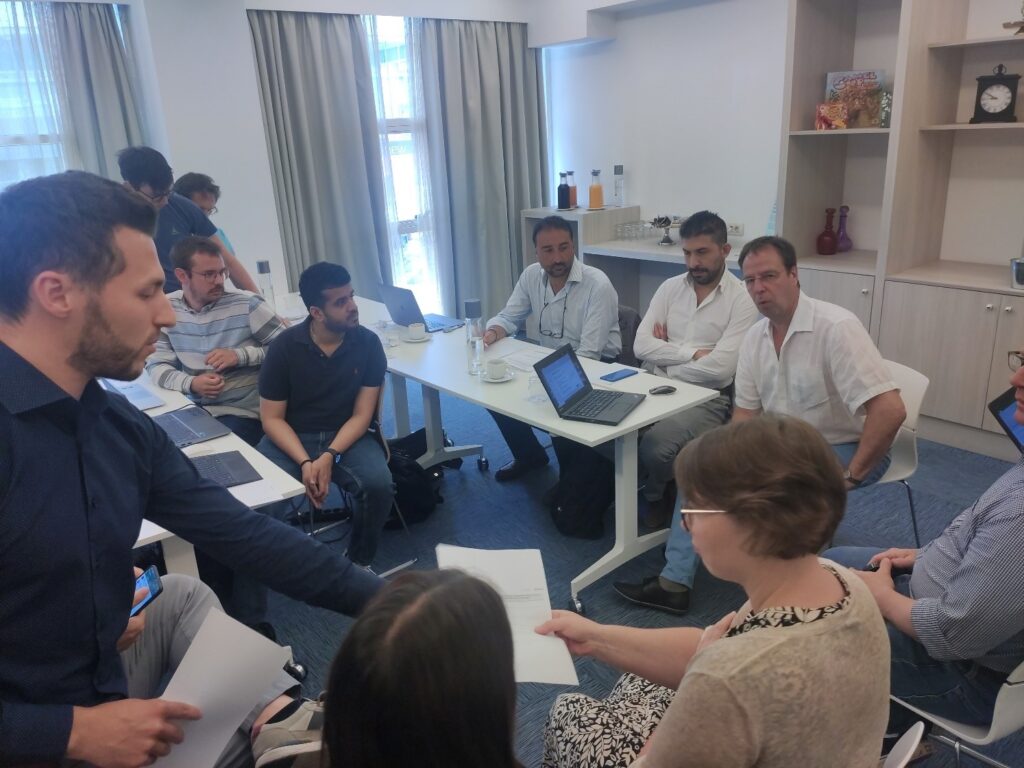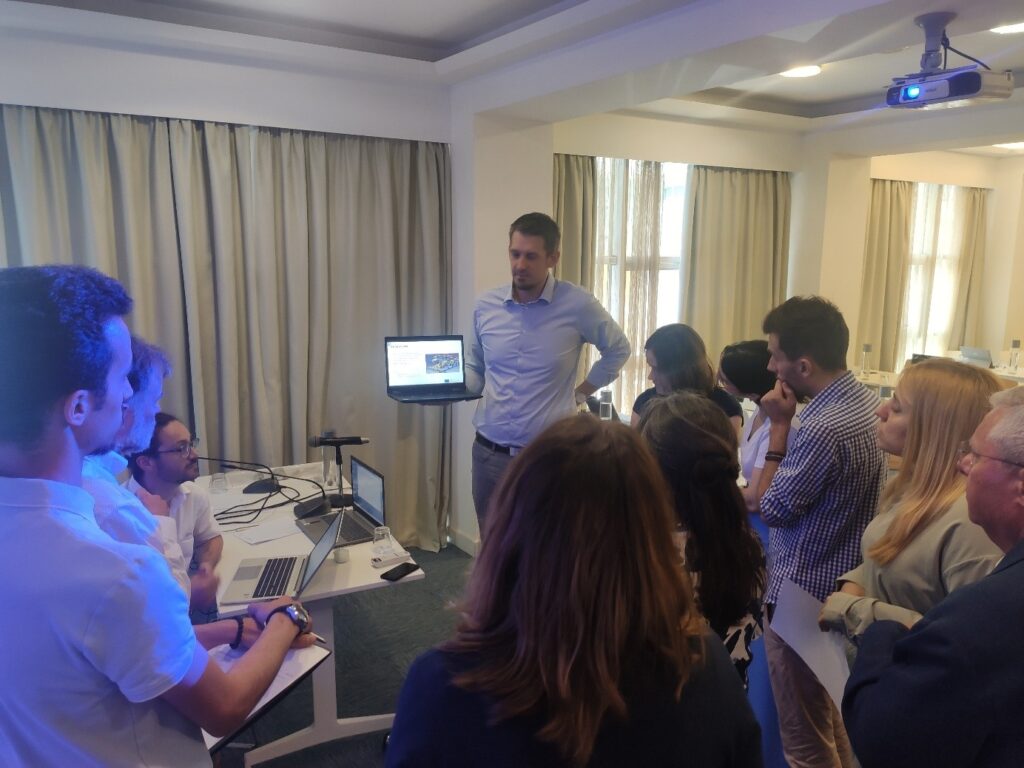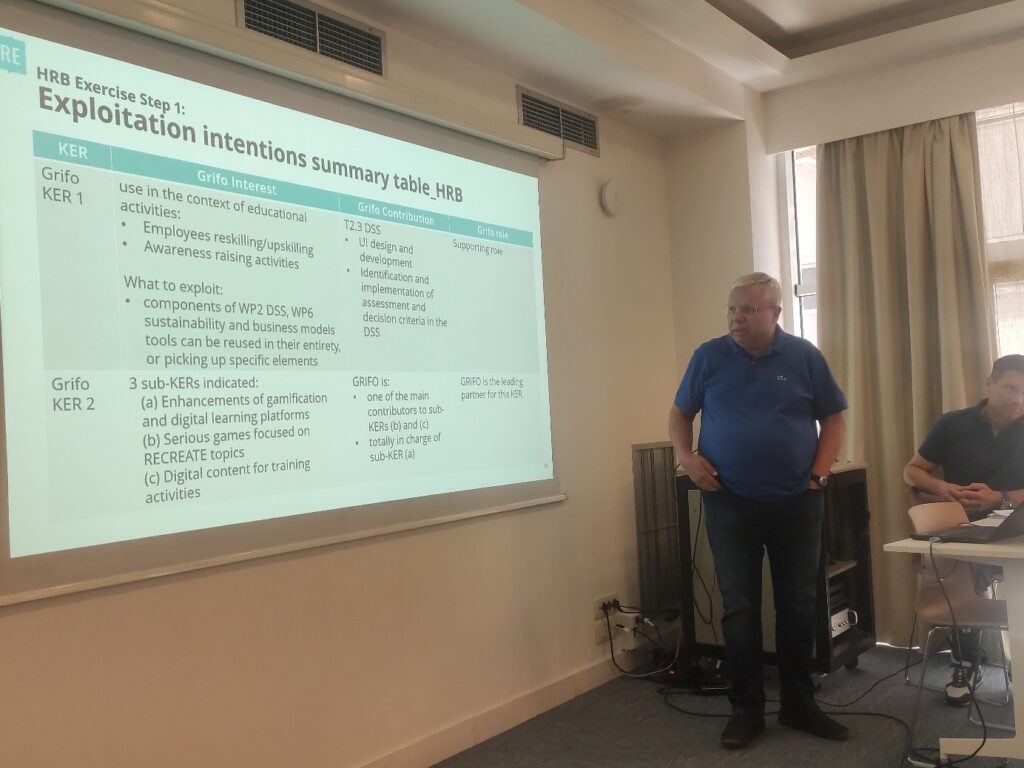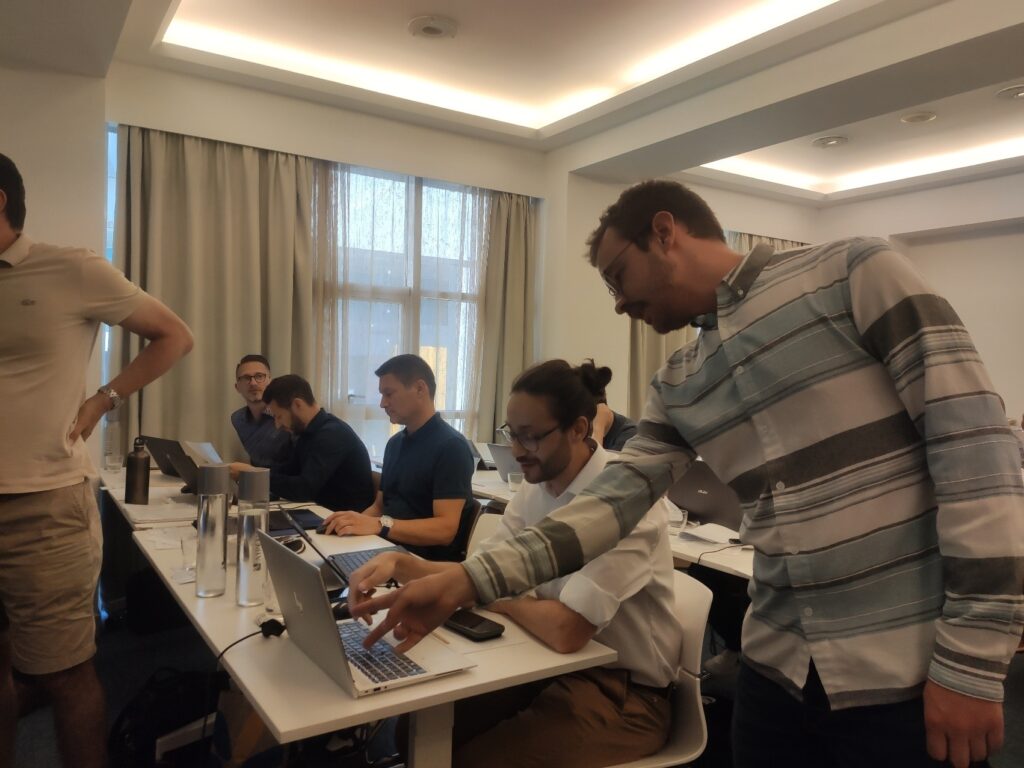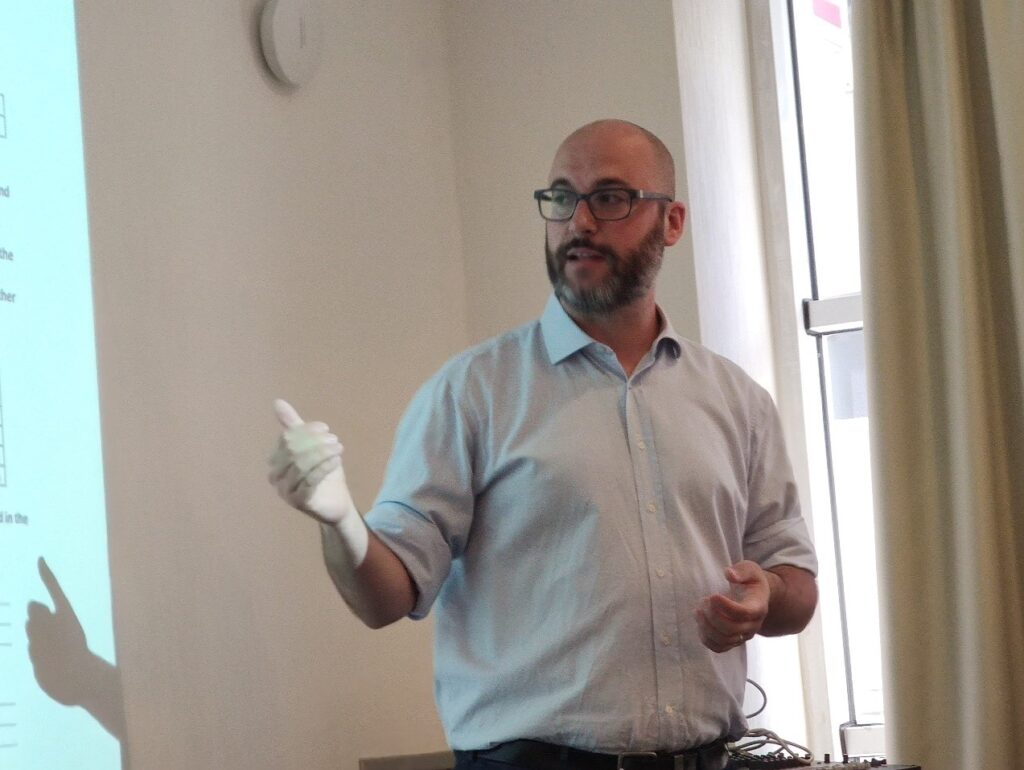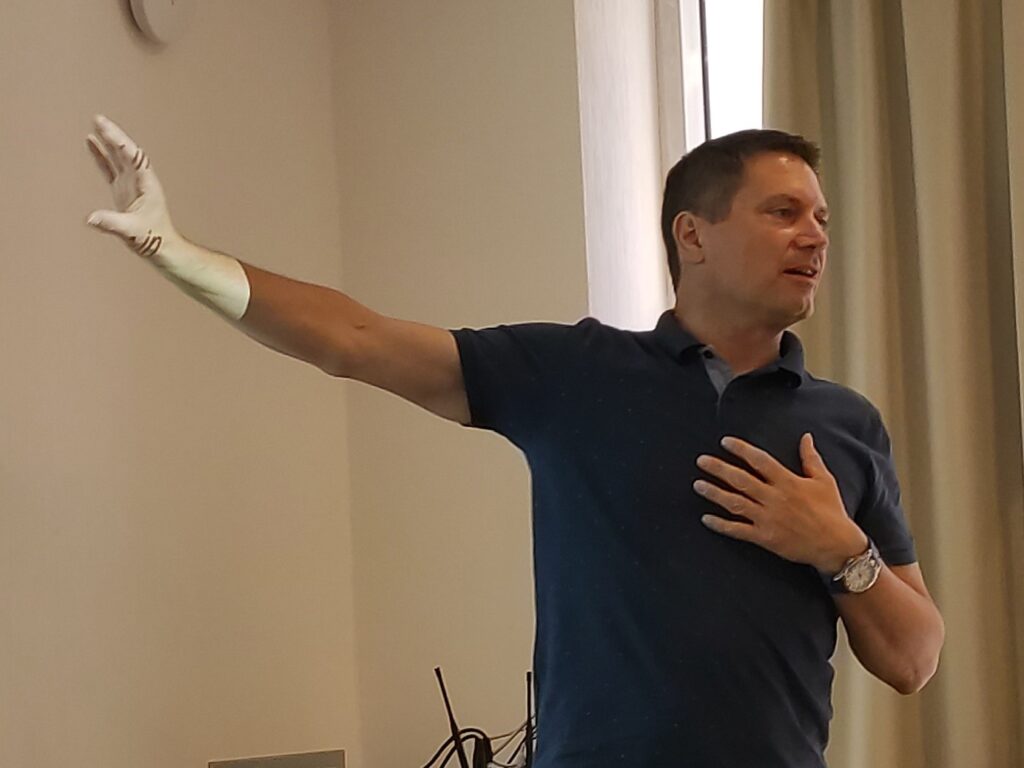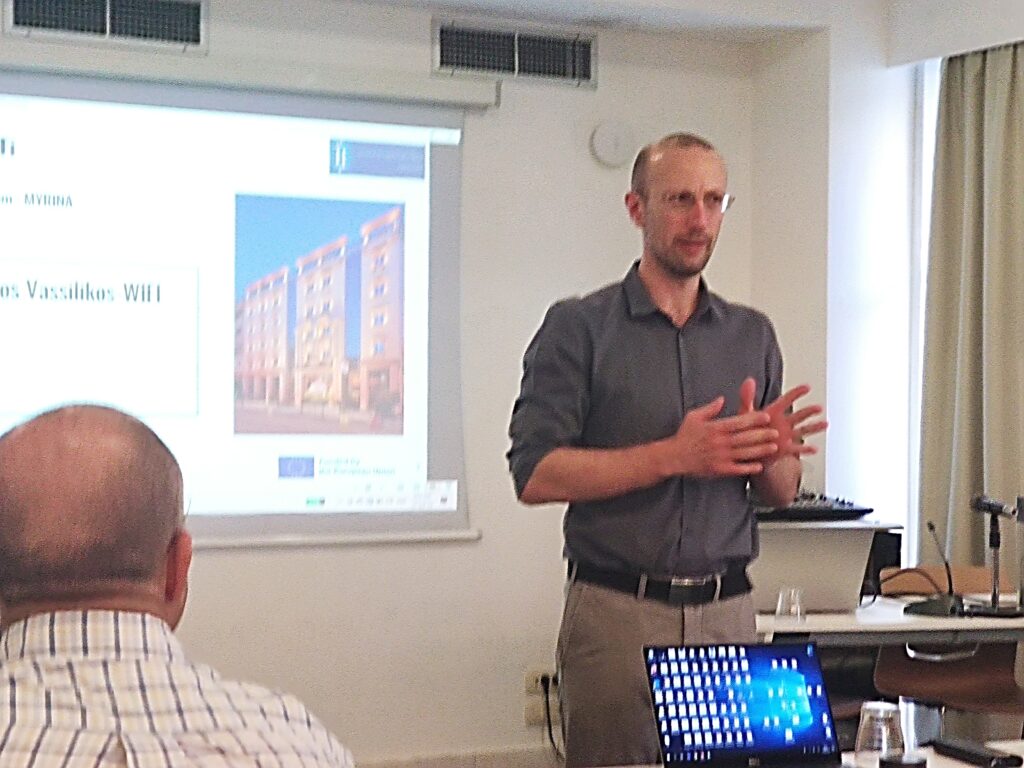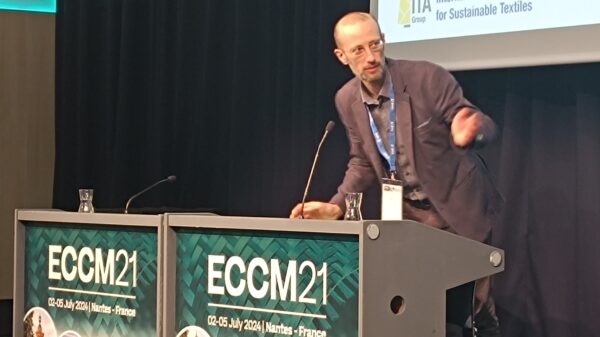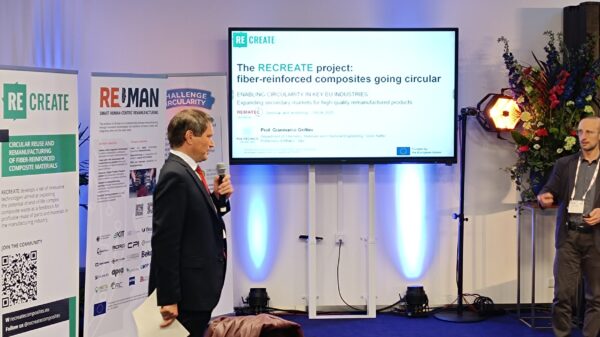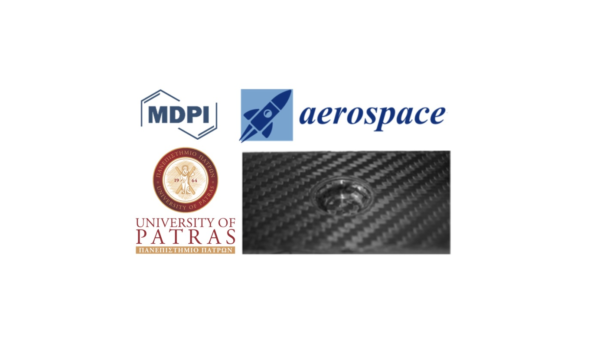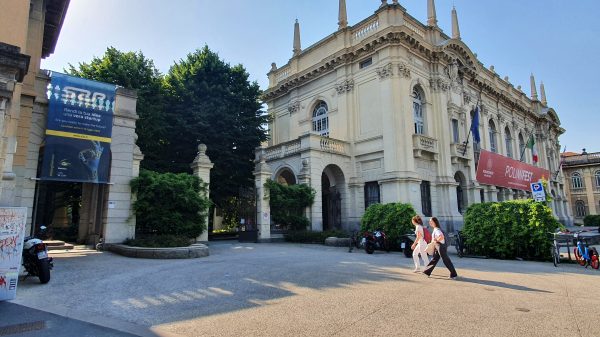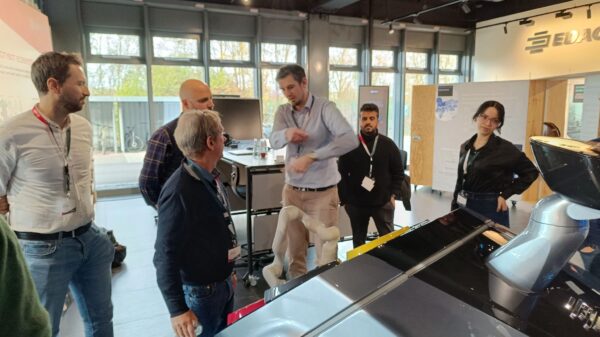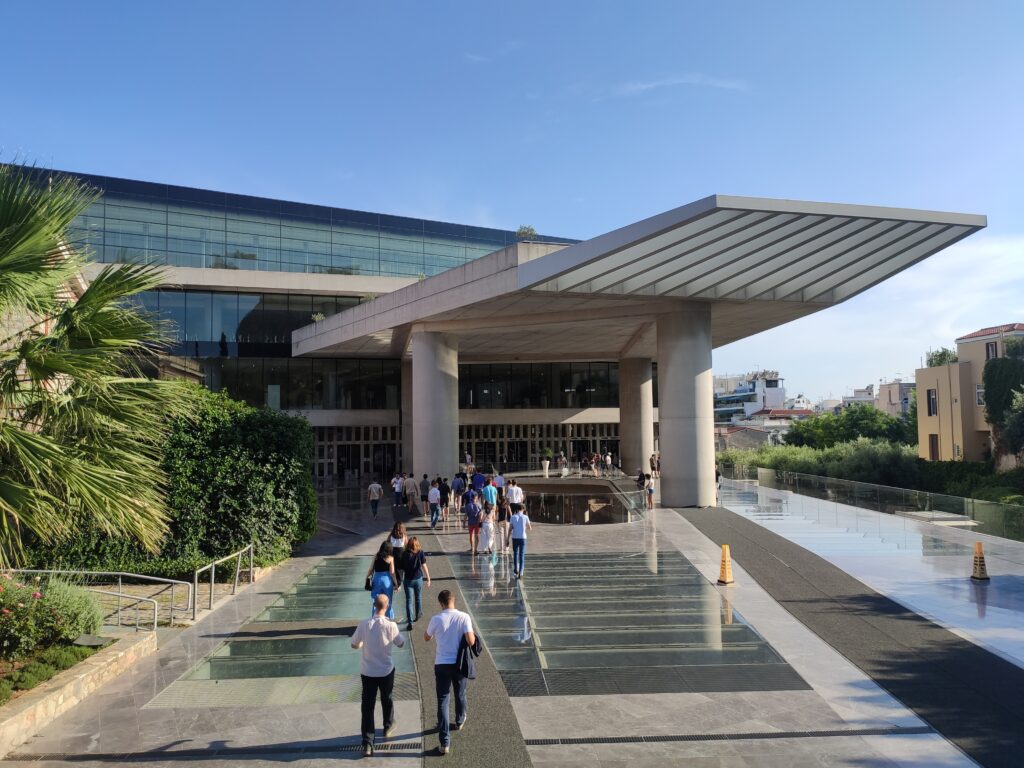
The RECREATE consortium successfully concluded a two-day consortium meeting in Athens held on 27th and 28th June 2023. One year into the project implementation the meeting hosted by University of Patras welcomed more than 25 participants representing almost all of the 21 partners of the project and created a fruitful space for discussions and workshops, aimed at advancing re-use, remanufacturing, recycling, and circularity solutions for end-of-life (EoL) composites.
The Consortium meeting revolved around reflecting on the milestones achieved as well as on challenges after the project’s first year, while outlining the forthcoming activities. This time the meeting agenda made a significant emphasis on promoting collaboration among participants, therefore enough time was available for open discussions, facilitated through several workshops organised on both conference days.
On the first day, participants reviewed the progress of each work package, with a particular focus given to the showcase and demo case development led by EDAG, GEVEN, and RES-T.
The initiation of the Work Package 6 (WP6) was introduced by the University of Partas (UPAT) and META Circularity (G_MEDIA), including the steps to implementation of an innovation programme and the initiation of data collection for circularity and sustainability assessments of the technologies expected to emerge from the work packages 2, 3 and 4.
On the first day, the Consortium dedicated time to assess dissemination efforts and milestones achieved so far, to set the ground to the advanced phases of the implementation of the Dissemination Action Plan, when mobilising potential exploitation partners, particularly through industry inquiries and engagements come into focus in preparation for future exploitation of the project’s results. It is, therefore, essential to continue with a proactive approach which started very early in the project’s time frame aiming to achieve meaningful impact still while the project is active.
The consortium expressed gratitude to UPAT for their exceptional organisation of the meeting, as well as their arrangement of a memorable visit to the extraordinary Acropolis Museum and an enjoyable dinner. Looking ahead, the project’s coordinator Gianmarco Enrico Griffini from Politecnico di Milano (POLIMI) anticipated that the next two meetings would take place in Germany in autumn 2023 and in Finland in spring 2024, possibly rejoining in Paris in the second half of that year, to be hosted, respectively, by EDAG, Tampere University and CNRS.
Photo gallery and the full report from the meeting is available below.
Photo Gallery
Full report from the Consortium Meeting
Falco Lehman from Fraunhofer presented an overview of WP2, which focuses on the re-use and remanufacturing of End-of-Life composite structures. Alexandra Poch from IRIS presented the developments of Task 2.1 on smart recognition and monitoring techniques for sorting of materials. Falco Lehman from Fraunhofer also discussed Task 2.2, which deals with non-destructive inspection, defect characterisation, and repair. Sharavan Torvi, POLIMI shared insights into Task 2.3, highlighting their Decision Support System (DSS) for part re-use. As a part of Task 2.4 Ines Sma (CNRS) presented their key findings and challenges of active dismantling of complex and multilayer structures and brough some samples for project partners to inspect. Mohammad Jawad Berro from ICAM continued by presenting initial results of Task 2.5 on temperature-assisted reshaping techniques, presenting results and conclusion from several tests such as hydrolysis, friction, tensile, relaxation and bending testing experiments.
The objectives of WP3 focus on recycling and reprocessing of materials from non-reusable parts, which were introduced and outlined by Stefano Turri from Politecnico di Milano (POLIMI). Sharavan Torvi, POLIMI, continued by presenting the results of electrofragmentation (Task 3.1), while Task 3.2 explored catalyst-assisted low-temperature green solvolysis. Essi Sarlin from Tampere University (TAU) carried on and discussed Task 3.3, which focuses on materials characterisation, preparation, and reprocessing.
The first workshop session was carried out and facilitated by Christopher Platzer and Mark Opitz from INVENT, leaders of WP4, which focuses on next-generation recyclable-by-design composites. Christopher first introduced Task 4.1, discussing the modular design of next-generation composite structures. The workshop aimed to foster collaboration and data capture for the three demo cases of EDAG, GEVEN, and RES-T, with the goal of enabling beneficial disassembly and facilitating reuse. Demo cases were presented by Stefan Caba and Alexander Erler from EDAG, Bonaventura Vitolo and Daniele Di Maio from GEVEN and Frank Richert from RES-T. To read more about demo-cases visit: https://www.recreatecomposites.eu/demo-cases/
The launch and preliminary activities of work-package 6 (WP6) on the topic of circular economy and sustainability assessment started was introduced by Christina Vogianzi from UPAT. Jurij Giacomelli from G_MEDIA highlighted Task 6.1 and presented the design of innovation management programme that will focus on supporting the development of technologies during their maturation of Technology readiness level (TRL). Jurij also outlined the approach to integration of the innovation programme with the exploitation of project results and circular business plan development. UPAT presented Task 6.2 and 6.3, emphasising the data gathering process which will enable them to develop digital tools for circularity demonstration and acceleration and integrated environmental and socio-economic sustainability assessment.
During the workshop session for WP7, led by Domenico Rotondi and Pietro Pigliaru from Grifo Multimedia (GRIFO), discussions revolved around gamification, setting objectives, and defining potential target scenarios for co-design and validation of learning resources.
Luca Gentilini from COBAT COMPOSITI led the workshop session for WP1, which concentrated on input EoL streams and output requirements. The discussions focused on the selection and supply of EoL parts in relation to recycling and reprocessing technologies and demonstrators. Workpackage and demo-case leaders were asked to determine where they fit in the input/output process of the RECREATE process-chain. This will enable COBAT to more accurately describe the EoL waste streams and technology requirements.
On the second day of the consortium meeting, attention shifted to WP8, which focuses on communication, dissemination, and exploitation. Sebastian Žužek from META Circularity presented the initiatives undertaken so far on public awareness, community engagement, dissemination, and communication activities, emphasising the importance of active participation of all partners in order to lay the ground for successfully exploitation of project results at the end of the project. Action planning for the next six months was also discussed. Marco Diani from POLIMI provided insights into Task 8.4 which focuses on knowledge management and intellectual property rights (IPR) protection. He presented different forms and types of collaboration and cooperation agreements.
Jurij Giacommeli from META Circularity introduced the exploitation approach and ongoing activities for preparation of the deliverable Exploitation Plan and Results that is due by M18. Following the presentation, the first exploitation workshop was introduced and led by META Circularity, focused on the identification of expected Key Exploitable Results (KERs). Participants jointly reviewed potential Key Exploitable Results (KERs) and prioritised them. Groups also discussed appropriate exploitation methods to design customised exploitation pathways for each intention. The outcomes of the workshop will be used in the next steps of Horizon Results Booster programme and in the designing of exploitation strategy.
Gianmarco Griffini, the project coordinator, provided updates on current administrative topics, upcoming deliverables, and project developments during the WP9 project management session.
The two-day consortium meeting in Athens proved to be a valuable platform for the RECREATE consortium, allowing for fruitful discussions, knowledge sharing, and collaborative planning to further the development of technical and circular solutions for composite structures. The consortium remains committed to advancing sustainable practices and fostering innovation in the field.
